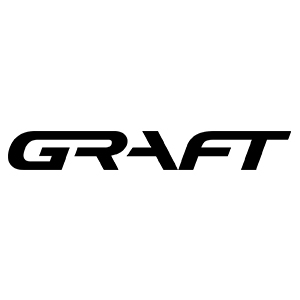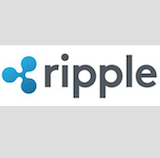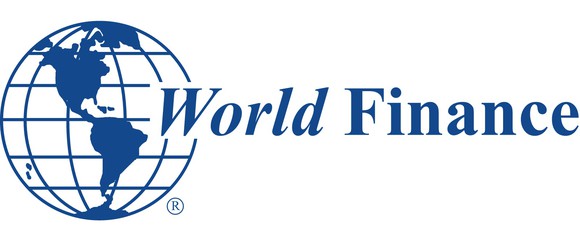Published
- 08:00 am

Graft aims to bring a lasting solution to most of the problems that existing cryptocurrencies face at the point of sale, including long wait times and high transaction costs. The demand for cryptocurrencies has grown dramatically in recent years. This is apparent in the tremendous increase in the prices of cryptocurrencies like bitcoin, ethereum, and litecoin, considering that their prices are mainly demand-driven.
But have you ever wondered why you can't pay for your dinner at any restaurant with cryptocurrency, especially after the increase in value they have enjoyed? The problem is, most existing cryptocurrencies are not designed specifically for point-of-sale.
The Long Confirmation Time for Crypto Transactions Discourages Consumers
In the cryptocurrency world, confirmation incorporates the stages of authorization, authentication, clearing, and settlement; the same stages that are involved in credit card payments. When you add up the time these stages take in a traditional credit card payment, you're very likely to find that cryptocurrencies, say bitcoin, are faster.
The shorter time for bitcoin is good for the merchant because they can access their funds faster, but it's time wasted for consumers because most of the time, they have to wait out the entire confirmation period before the purchase is complete. Credit card payments do not require this type of time commitment from customers.
Using Cryptocurrency Is Expensive For Consumers
The high costs that are associated with the conventional payment systems are one of the things that bitcoin was supposed to tackle. The opposite is what is happening when it comes to using bitcoin as a regular currency.
The fact that consumers pay the transaction fees as opposed to merchants in credit card payments discourages the mass adoption of bitcoin.
Graft is looking to solve the problems of transaction costs and settlement times with a merchant-centric, agile blockchain.
Unlike most of the solutions in the space, GRAFT offers a payment blockchain that is compatible with major existing payment technologies. This allows merchants to accept both fiat and cryptocurrency payments, enjoy instant settlement, and have seamless access to their funds in their preferred currency. This ease of use for both consumers and merchants will go a long way toward ensuring that cryptocurrencies deliver on their promise of being a more efficient medium of exchange.
Related News
- 03:00 am

Ripple, provider of the leading enterprise blockchain solution for payments, has partnered with MoneyGram (NASDAQ: MGI), one of the world's largest money transfer companies, to pilot XRP in their payment flows. As part of this agreement, both companies will also explore MoneyGram's integration into Ripple's ecosystem through xVia.
MoneyGram will pilot the use of XRP, the native digital asset of the XRP Ledger, in payment flows through xRapid, Ripple's solution for on-demand liquidity. XRP remains the most efficient digital asset for payments with transaction fees at just fractions of a penny, compared to Bitcoin fees of about $30 per transaction. Similarly, the average transaction time for XRP is 2-3 seconds with other top digital assets ranging from 15 minutes to an hour.
Money transfer companies, like MoneyGram, allow people to safely and efficiently send cross-border payments to friends, families and business partners. The current model for these payments requires money transfer companies to use pre-funded accounts across the globe to source liquidity. Newer blockchain technologies have the potential to revolutionize this process and optimize capital deployment.
"The inefficiencies of global payments don't just affect banks, they also affect institutions like MoneyGram. Money transfer companies are incredibly important because they help people get money to their friends and loved ones," said Brad Garlinghouse, CEO of Ripple. "We are excited about this pilot and a long-term strategic partnership with MoneyGram. By using a digital asset like XRP that settles in three seconds or less, they can now move money as quickly as information."
For MoneyGram, the second largest money transfer company in the world, this strategic partnership will allow them to understand how blockchain technology and XRP can improve the efficiency of their global treasury operations and consumer experience.
Alex Holmes, Chief Executive Officer of MoneyGram, said, "Every day blockchain technology is changing the norm and encouraging innovation. Ripple is at the forefront of blockchain technology and we look forward to piloting xRapid. We're hopeful it will increase efficiency and improve services to MoneyGram's customers."
Related News
- 07:00 am

To continue the ongoing migration to EMV chip, and to bring increased security and convenience to the point of sale, Visa is making the signature requirement optional for all EMV contact or contactless chip-enabled merchants in North America, beginning April 2018.
Simultaneously, Visa continues to invest in emerging capabilities that leverage advanced analytics and biometrics to define the future of payments security.
“Visa is committed to delivering secure, fast and convenient payments at the point of sale,” said Dan Sanford, vice president, consumer products, Visa. “Our focus is on continually evolving the market towards dynamic authentication methods such as EMV chip, as well as investing in emerging capabilities that leverage advanced analytics and biometrics. We believe making the signature requirement optional for EMV chip-enabled merchants is the responsible next step to enhance security and convenience at the point of sale.”
Since 2011, when Visa first outlined plans for the adoption of EMV chip technology, the company has supported financial institution and merchant partners as they have deployed more than 460 million EMV chip cards and EMV chip-enabled readers at over 2.5 million locations. Less than two years since EMV chip launched in the U.S., fraud declined 66 percent at EMV chip-enabled merchants.
Merchants and technology partners seeking resources or support for their EMV plans are encouraged to engage with Visa.
Related News
- 05:00 am

Blackhawk Network, a global financial technology company, and Alipay, a leading digital payment platform operated by Ant Financial Services Group, have partnered to expand Alipay’s mobile payment acceptance and engagement offerings to participating U.S. retailers.
Leveraging Blackhawk’s technology, the partnership will present an opportunity for Blackhawk’s network of retail partners to elect to engage with visiting Chinese travelers. Blackhawk intends to roll out the service in select participating retailers beginning January 2018.
Alipay currently boasts more than 520 million active Chinese users. Through this partnership, Blackhawk’s retailers intend to connect with Alipay users traveling in the U.S. by accepting in-store payment via Alipay and are searchable to users on Alipay’s Discover platform. Retailers can increase brand visibility, drive store traffic and sales, reduce payment friction and gain valuable insight into their tourist consumers’ preferences.
“Until now, Chinese tourists lacked convenient access to information on what payment methods were accepted at U.S. retailers they wished to visit,” said Talbott Roche, CEO and president of Blackhawk. “Alipay is ubiquitous in China, and represents an effective way for retailers to engage with Chinese travelers. We are excited to offer our retail partners a way to better connect with Chinese consumers by alleviating the major pain points of shopping, researching and paying while visiting and ultimately, providing Alipay users with an excellent shopping experience while they travel here in the U.S..”
Blackhawk’s innovative solution leverages in-store QR codes to access Blackhawk’s proprietary platform which then enables instant issuance of a retailer’s branded stored-value egift. In addition to mobile and online payments and money transfers, Alipay users can get local recommendations, find promotions, book a hotel, buy movie tickets or even make doctors’ appointments directly within the app.
“Approximately 4 million Chinese tourists visit North America every year[1]. Many of those travelers are Alipay consumers already and are looking for the payment safety, convenience and efficiency they are accustomed to at home,” said Souheil Badran, president of Alipay Americas. “We partnered with Blackhawk for its robust network of top-tier retailer partners, its innovative solutions and proprietary technology, and we are pleased to continue to provide Chinese travelers with a seamless shopping and payment experience in North America.”
Related News
- 05:00 am

Small and medium-sized Enterprises in Australia can look forward to securing business loans faster and easier, as Ferratum Oyj, an international provider of mobile banking and digital lending services, launches Ferratum Business in Australia.
Ferratum Business, the company’s small-to-medium enterprise (“SME”) lending division, can approve SME business loans faster and has a track record of higher approval ratios than traditional banks, thanks to its unique combination of a proprietary credit assessment technology and highly trained lending specialists. Loans are approved without collateral requirements, interviews or paperwork. On average, a business loan application with Ferratum takes five minutes and the funds are ready to be delivered to the applicant‘s bank account in one business day. In Australia, Ferratum Business offers SME customers loans of up to A$150,000 for up to 18 months.
According to National Australia Bank reports of 2017, small to medium enterprises (SMEs) contribute 57% to Australia’s GDP. One in 10 SMEs are actively growing their businesses, while nearly half (45%) aim to expand within the next 3 years. Overall, the SME market represents nearly 70% of all employment according to the Australian Bureau of Statistics. Australia’s small business environment is a fertile ground for growth, which in turn creates strong demand for new sources of financing.
Currently, SMEs are not in a position to negotiate with conventional banks for improved access or better loan pricing, which creates a tangible need for alternative lenders in Australia; unsurprisingly, the market is growing steadily.
Scott Donnelly, Director of Ferratum Business Lending, commented:
“ With many SMEs in Australia neglected by conventional banks due to lengthy processes and harsh collateral requirements, at Ferratum Business we appreciate that time is of the essence and digitalization is a crucial part of the solution. We understand that the financing needs of SME businesses are dynamic and fast-moving, and thanks to our proprietary credit assessment algorithms, Ferratum can move at the speed of business. Our SME loan application process takes only minutes to complete and our lending decision can be made the same day, making it easy for SMEs to get the growth capital they need, when they need it.“
Related News

Kirit Patel
Regional Managing Director at EOH
London-based Big Bus Tours is the largest operator of open-top sightseeing tours in the world, providing sightseeing tours in 19 cities across three conti see more
- 08:00 am

As the last year has shown, banks have had little choice but to fully embrace the digital revolution. Today, consumers demand the utmost convenience - and they expect no less from their financial service provider. Financial institutions are, therefore, faced with the cloud's double-edged sword, and the accompanying security risks that come with it.
As banks wade through myriad challenges, some rise above the crowd, embracing digitalisation wholeheartedly and steaming ahead to give customers what they need and expect. We celebrate those in the World Finance Digital Banking Awards 2017.
The last year also saw considerable advances in banking security, including a greater adoption of iris recognition and biometric authentication. Small fintech firms, meanwhile, continue to find innovative ways to make spending, managing and investing money easier than ever. Though we saw their rise in 2016, throughout 2017 a growing number of traditional banks struck partnerships with some of the biggest tech firms out there.
But perhaps the biggest development we have seen over the past 12 months has been the rise in popularity of digital currencies. In fact, in 2017 we have witnessed cryptocurrencies enter the mainstream.
There has certainly been a lot of change over the past year, with many financial institutions demonstrating their willingness to evolve, innovate and partner up. That said, 2017 has also shown the game is becoming more competitive, and that new rivals may not just be limited to the small fintechs that banks have only just come to terms with.
As such changes continue to infiltrate the industry, forward thinking is more important than ever before. To those that rise up to such challenges and embrace the future, we commend them in the latest edition of the World Finance Digital Banking Awards.
Related News
- 02:00 am

Gemalto, the world leader in digital security, can today reveal that while the vast majority of global companies (95%) have adopted cloud services, there is a wide gap in the level of security precautions applied by companies in different markets. Organizations admitted that on average, only two-fifths (40%) of the data stored in the cloud is secured with encryption and key management solutions.
The findings – part of a Gemalto commissioned Ponemon Institute "2018 Global Cloud Data Security Study" – found that organizations in the UK (35%), Brazil (34%) and Japan (31%) are less cautious than those in Germany (61%) when sharing sensitive and confidential information stored in the cloud with third parties. The study surveyed more than 3,200 IT and IT security practitioners worldwide to gain a better understanding of the key trends in data governance and security practices for cloud-based services.
Germany's lead in cloud security extends to its application of controls such as encryption and tokenization. The majority (61%) of German organizations revealed they secure sensitive or confidential information while being stored in the cloud environment, ahead of the US (51%) and Japan (50%). The level or security applied increases further still when data is sent and received by the business, rising to 67% for Germany, with Japan (62%) and India (61%) the next highest.
Crucially, however, over three quarters (77%) of organizations across the globe recognize the importance of having the ability to implement cryptologic solutions, such as encryption. This is only set to increase, with nine in 10 (91%) believing this ability will become more important over the next two years – an increase from 86% last year.
Managing privacy and regulation in the cloud
Despite the growing adoption of cloud computing and the benefits that it brings, it seems that global organizations are still wary. Worryingly, half report that payment information (54%) and customer data (49%) are at risk when stored in the cloud. Over half (57%) of global organizations also believe that using the cloud makes them more likely to fall foul of privacy and data protection regulations, slightly down from 62% in 2016.
Due to this perceived risk, almost all (88%) believe that the new General Data Protection Regulation (GDPR), will require changes in cloud governance, with two in five (37%) stating it would require significant changes. As well as difficulty in meeting regulatory requirements, three-quarters of global respondents (75%) also reported that it is more complex to manage privacy and data protection regulations in a cloud environment than on premise networks, with France (97%) and the US (87%) finding this the most complex, just ahead of India (83%).
Head in the clouds
Despite the prevalence of cloud usage, the study found that there is a gap in awareness within businesses about the services being used. Only a quarter (25%) of IT and IT security practitioners revealed they are very confident they know all the cloud services their business is using, with a third (31%) confident they know.
Looking more closely, shadow IT may be continuing to cause challenges. Over half of Australian (61%), Brazilian (59%) and British (56%) organizations are not confident they know all the cloud computing apps, platform or infrastructure services their organization is using. Confidence is higher elsewhere, with only around a quarter in Germany (27%), Japan (27%) and France (25%) not confident.
Fortunately, the vast majority (81%) believe that having the ability to use strong authentication methods to access data and applications in the cloud is essential or very important. Businesses in Australia are the keenest to see authentications put in place, with 92% agreeing it would help ensure only authorised people could access certain data and applications in the cloud, ahead of India (85%) and Japan (84%).
"While it's good to see some countries like Germany taking the issue of cloud security seriously, there is a worrying attitude emerging elsewhere," said Jason Hart, CTO, Data Protection at Gemalto. "This may be down to nearly half believing the cloud makes it more difficult to protect data, when the opposite is true.
"The benefit of the cloud is its convenience, scalability and cost control in offering options to businesses that they would not be able to access or afford on their own, particularly when it comes to security. However, while securing data is easier, there should never be an assumption that cloud adoption means information is automatically secure. Just look at the recent Accenture and Uber breaches as examples of data in the cloud that has been left exposed. No matter where data is, the appropriate controls like encryption and tokenization need to be placed at the source of the data. Once these are in place, any issues of compliance should be resolved."
Related News
- 07:00 am

In partnership with the Berlin-based software provider FinReach, Postbank today launches a quick and secure tool for its clients to switch their bank account in less than ten minutes. The Berlin IT-provider has already assisted the switch of thousands of accounts through its fully-digital service.
Since the implementation of the Payment Account Directive (PAD) in Germany in 2016, also known as “ZKG”, along with the media coverage of the subject, switching rates have significantly increased. In Germany alone, around 2.5 million bank accounts are switched every year. “We are very pleased to see yet another major customer-oriented bank place their trust in us. Our fully-digital account switch is designed to offer a secure and transparent service to the end-customers, whilst drastically reducing the back-office effort needed for these processes. There is no better way to start the year,” says Sascha Dewald, Managing Director of FinReach.
Oliver Haberstroh, Head of Department, Direct Sales at Postbank: “We would like to be there for our customers digitally and in person. The quality of FinReach’s solution, along with their customer focus fully convinced us. We are very pleased to expand our digital offering in 2018 and provide added value to our customers.”
Since its market launch two years ago, the account switch service is already being used by over 500 banks in three countries. Amongst them, Deutsche Bank, DKB, several Sparkassen and Volksbanken, as well the banking group Raiffeisen Austria or the Spanish Self Bank. “Usability and speed are very important for us. Our bounce rate is very low, far lower than what other providers experience. After getting started, over 90 percent of customers complete the switch using our solution and over 70 percent also use it to close their old bank account” describes Sascha Dewald. “The secret of our success is the focus on long-term strategies for our product development. We invest in end-customer surveys and we test and develop with our users and partners to constantly improve our services. This approach has helped us become the market leader and we will remain so in 2018.”
With FinReach bank clients can switch their direct debits, standing orders and incoming payments from one bank to another fully automatically in less than ten minutes. Once they start their account switch, the customer can choose payment partners from a personalized list (e.g. utilities, employers etc.) and FinReach will send notifications informing about their new account details on their behalf. The account switch service can also be used to close the customer’s old bank account. Afterwards, a full summary of the process can be downloaded and saved for personal records. A process which usually takes days to complete can now be done within a few minutes, anytime and from any digital device.
Related News
- 02:00 am

SSP has strengthened its software development with the appointment of Matt Gatrell as Software Engineering Director.
Reporting directly to Jim Sadler, Chief Operating Officer, Gatrell will lead the single cohesive engineering department formed by combining all of SSP's software delivery teams globally into one capability.
The simplified structure will provide SSP with the agility to leverage best practices and software components across its systems. To complement this, SSP is accelerating the DevOps programme it started last year through the faster adoption of modern software engineering practices and tools across all its software products.
Together this will enable SSP to better serve all its customers by delivering and enhancing products more quickly and at a higher quality.
Gatrell brings significant experience of leading software teams and driving modern software development practices to the role. He has served in senior technology leadership roles at a number of successful, fast-growth fintech companies, and joined SSP from Neilson Financial Services, where he was CTO.
"I have joined SSP at a great time, which is reflected in its serious intent to embrace DevOps at a much faster pace" said Gatrell. "I am looking forward to using my extensive industry knowledge and expertise to develop and lead the strategy for the newly-formed Software Engineering department, supported by the talented team at SSP."
Speaking about the appointment, Jim Sadler said: "I am delighted to welcome Matt to SSP. His appointment continues, at pace, the work we began in 2017 to significantly strengthen our delivery capability.
"Matt's achievements and deep expertise in the field of software engineering make him a significant addition to our firepower, which will enable us to deliver on our service and product promises to clients, and continue to outpace our competitors."










